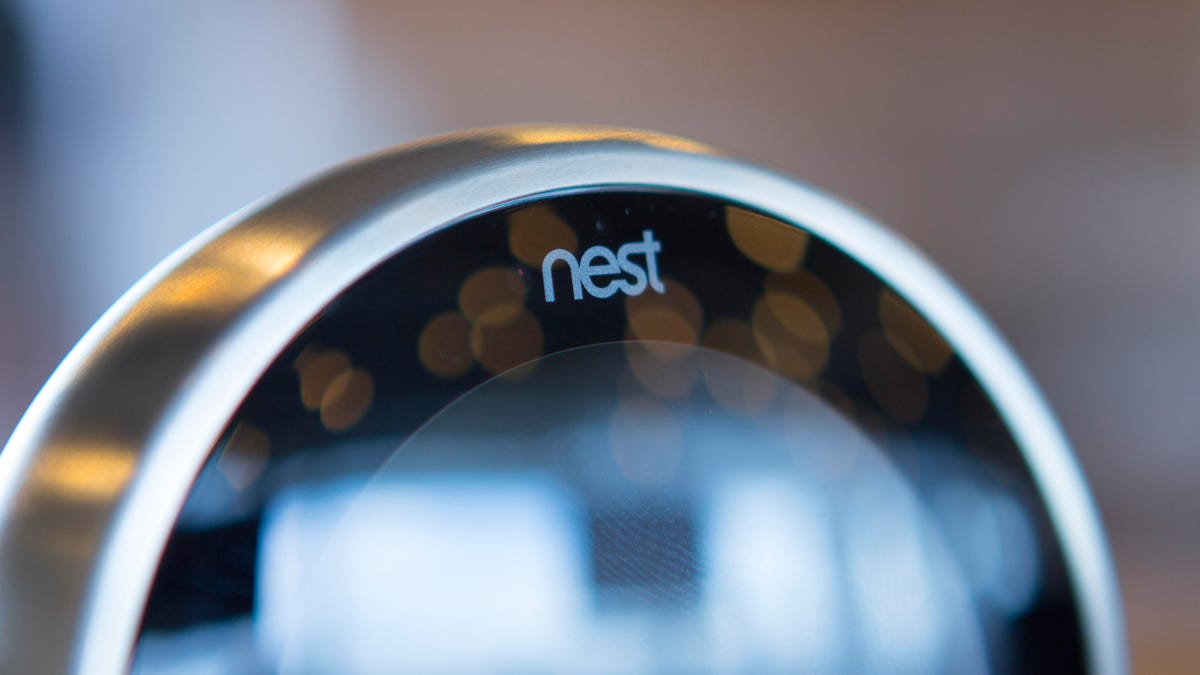Google Nest to integrate with HomeKit, bringing smart home unification one step closer
When the connectivity standard known as Matter is released later this year, it could tear down the walls currently dividing smart home ecosystems.

According to Google, soon Nest thermostats will be compatible with competing smart home ecosystems like Apple HomeKit.
In the not-too-distant future, maybe even before 2021 is out, you'll be able to do something no one's ever done before: connect products made by Google Nest with Apple's HomeKit ecosystem, quickly, easily and -- get this -- directly. Or, you might want to incorporate Google devices into your Amazon Alexa-controlled smart home instead. That'll be fine, too.
In fact, this newfound ability to link previously incompatible devices will work in any direction, meaning you'll also be able to set up Amazon's Ring doorbells or Blink cameras on your Google-based smart home -- and control them the same way you would using Amazon's Alexa or Apple's Siri.
No janky workarounds, no third-party services like IFTTT to bridge the gap. Just you, your smart home gadgets and the smart home platform of your choosing, all living in harmony.
Sound like fantasy? It won't be, if Google's vision of the smart home's future, outlined in a blog post published last week, comes true.
Historically, Apple's digital voice assistant Siri hasn't worked well with devices made by Google.
According to Google, communication will eventually open up between Google-made devices and rival companies' smart home ecosystems and products thanks to Google's adoption of a new connectivity standard called Matter, (formerly known as Project CHIP).
"All Nest displays and speakers, like the Nest Hub and Nest Mini, will be automatically updated to control Matter devices," according to the blog post. "Plus, we'll update the newest Nest Thermostat to support Matter -- meaning for the first time it can be controlled on other platforms that have certified with Matter."
A glance at Matter's partner list provides a clue as to what "other platforms" that may include: Apple's HomeKit, Amazon's Alexa, Samsung's SmartThings -- plus devices and services from the likes of Signify's Philips Hue, Comcast, Huawei and more.
The three-arrow Matter logo shown on this smart light bulb signifies smart-home tech that will work well with other Matter-certified devices.
Google Senior Project Manager Kevin Po confirmed this feature in an interview with CNET. Speaking specifically about the latest Nest Thermostat, he said, "If a user chooses to have it set up and interoperate with another platform, then we will support them through it."
When will this brave new world come to fruition? Not until later this year, or maybe even early 2022, according to the Connectivity Standards Alliance, which developed the Matter standard. But preparations are underway already.
Google's mind is made up on Matter
Google in particular has gotten out ahead of the pack on this one. The company has detailed some of the steps it's currently taking -- or will take soon -- to ready its Google Nest smart home gadgets and Android mobile operating system for Matter's primetime debut.
Eventually, Google's Android mobile operating system will get Matter integrations that allow for streamlined setup and device controls.
For starters, not only will the entire line of current Google Nest smart speakers and displays receive an update to control Matter devices, some of Google's more well-equipped gadgets will also serve as connection points, aka hubs.
Basically, the Nest Wifi router, the latest Nest Hub and the flagship Nest Hub Max will use a technology Google helped develop -- called Thread and part of the Matter standard -- to connect to other Thread-enabled devices in a way that's even faster and more secure than Wi-Fi alone.
"Thread is great for low-powered, mesh, reliable, scalable communication," said Po. But most mobile devices can't communicate directly with Thread gadgets. "Say you wanted your phone to interoperate with, say, a Thread device," Po added. "You need a special type of Thread device that can kind of bridge between Wi-Fi and Thread, right, to provide that connectivity." That's where Thread connection points come in.
The new second-generation Nest Hub uses a technology called Thread to communicate with other Thread-enabled smart home gadgets.
Some other notable strides Google announced include:
- A new smart home directory, including a catalog of Hey Google-compatible smart home devices as well as available Google Assistant Actions, aka commands that Google's digital voice assistant can perform.
- Support for an open-source communication protocol called WebRTC, which Google says reduces latency and improves video and audio streaming between security and doorbell cameras, TVs, smart displays and mobile devices.
- More expansive options for Home & Away Routines, allowing for the automation of Nest cameras and thermostats as well as smart lights, plugs and switches based on whether or not anyone's home.
Eventually, Google expects to implement the Matter standard deeply within its Android mobile operating system. The goal will be to simplify the Matter-certified smart home device setup process down to just a few taps and to provide ways to instantly control new devices without having to download additional apps.
"With Android, we'll be actually building the Matter functionality into Google Play services, and so it'll effectively be an app that other Android apps can leverage and really kind of make it really easy for a user to set up a Matter device," Po said.

